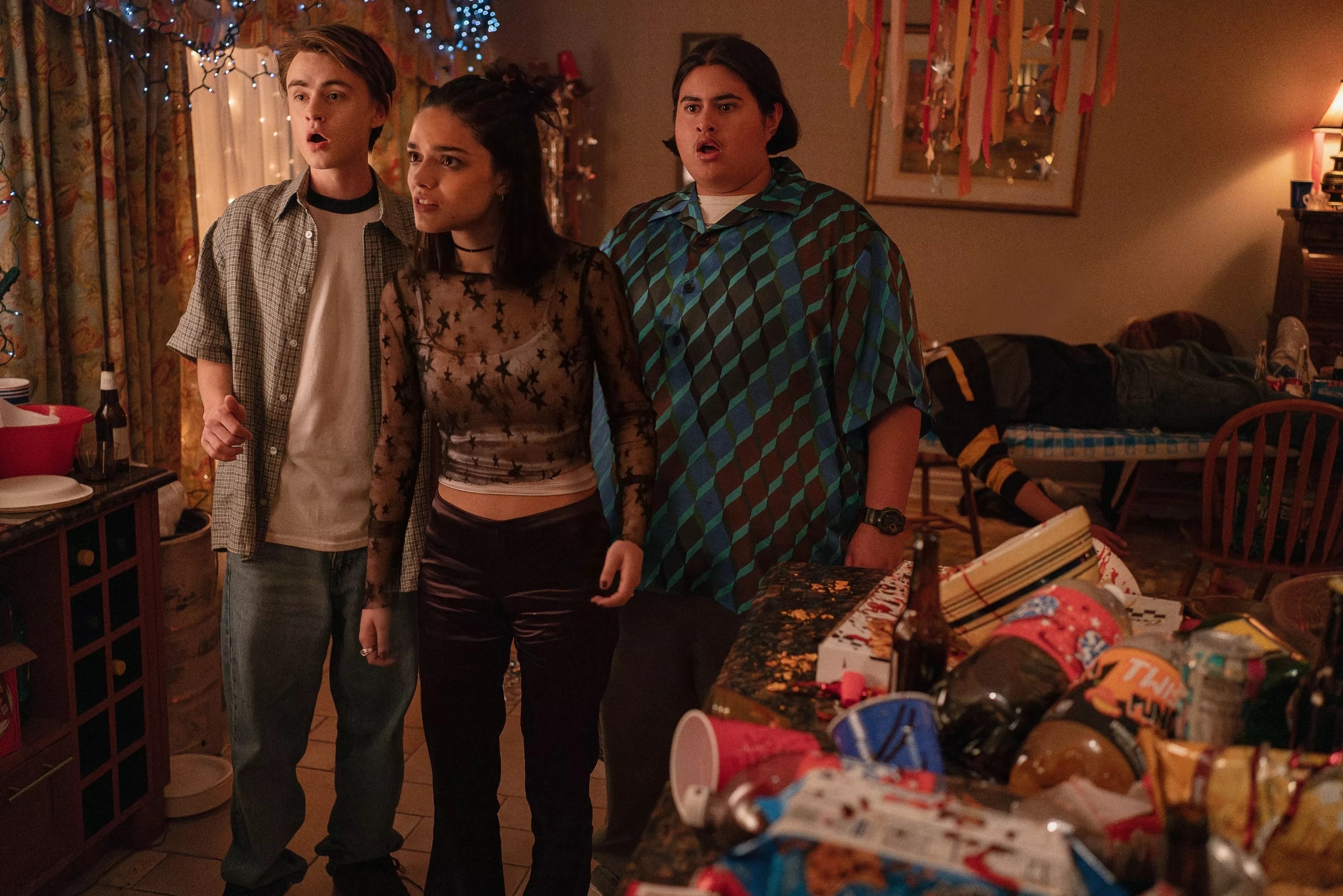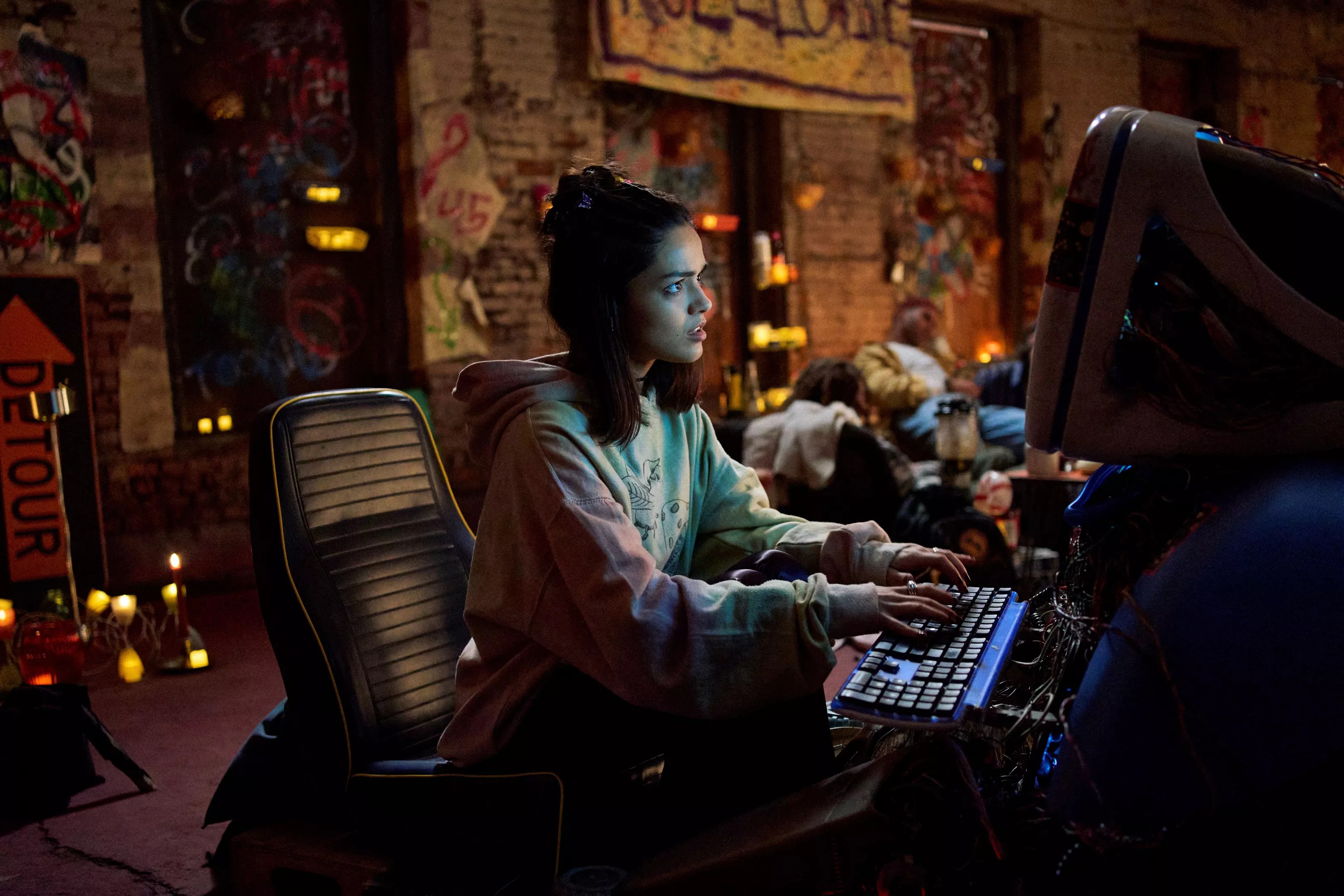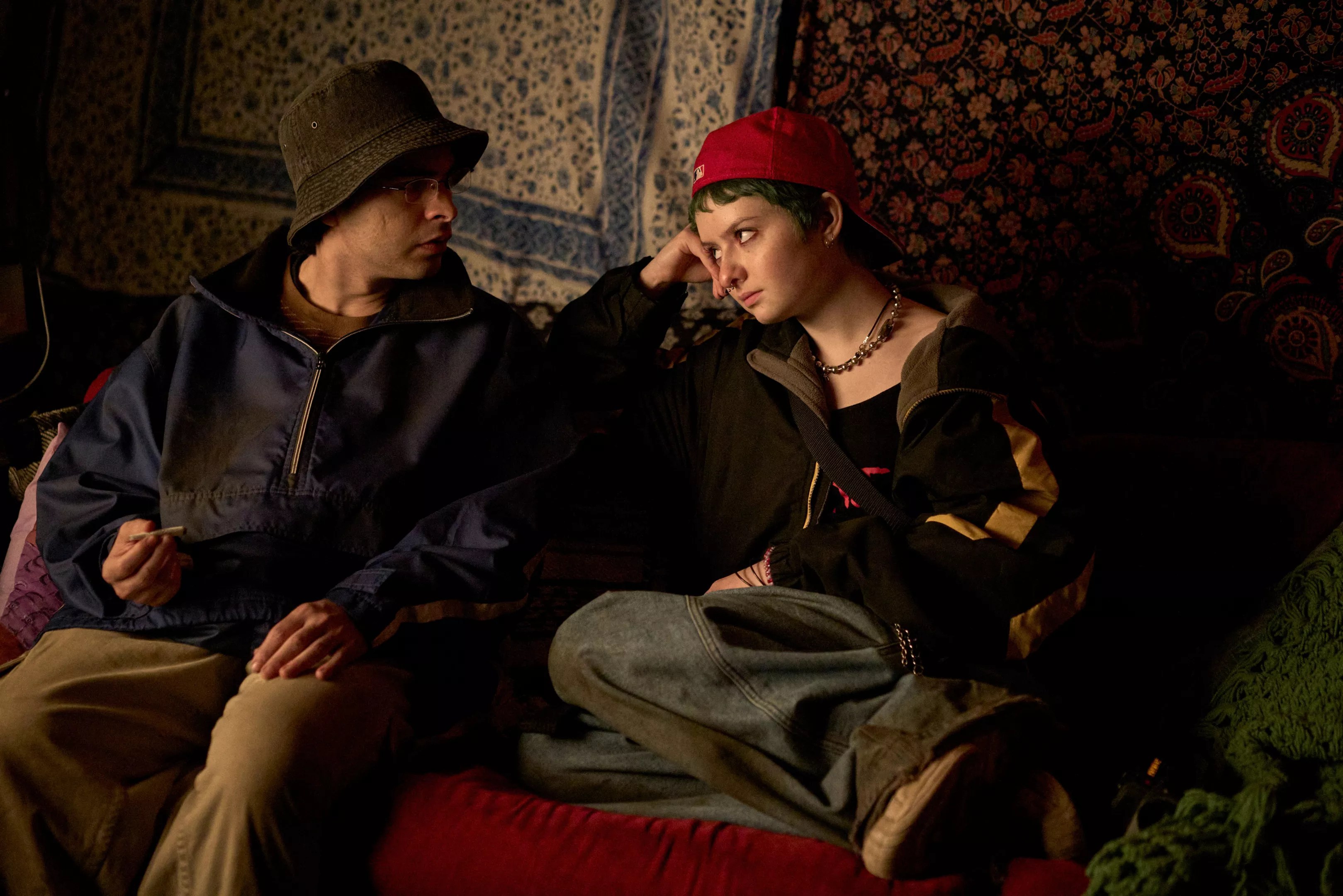
A24 photo

Audio By Carbonatix
People expected a lot of good to come around the turn of the millennium. In America, 1999 was an optimistic time; the Cold War had been won, digital technology was still new and exciting, and the future couldn’t possibly lead to traumatic events like wars or pandemics. Even the mighty Y2K crisis, an apocalyptic conspiracy surrounding a software bug that threatened to crash computers worldwide on January 1, 2000, couldn’t stifle the excitement around the new millennium.
The “year 2000 problem” did exist, and the conspiratorial aspects of the problem form the premise of Saturday Night Live alum Kyle Mooney’s new disaster-comedy Y2K. In real life, the crisis was averted by armies of programmers preemptively fixing the bug in the world’s major software systems. This time, however, the problem isn’t just real – it’s deadly. At the stroke of midnight, a Skynet-style technological takeover begins in which computers and household appliances aggregate into killing machines bent on enslaving humanity. But before we get to that, we have to meet one horny, insecure teenage boy.
The film’s first scene introduces us to Eli (Jaeden Martell), a dorky high school kid living in a nondescript Northeastern town. Using his iMac computer, he logs into America Online, watches a pixelated video of President Clinton discussing Y2K, attempts to chat with his crush Laura (Rachel Ziegler) on AOL Instant Messenger, and burns a mix CD, all while “Praise You” by Fatboy Slim plays on the soundtrack. That’s all within the first three minutes and nearly all within the frame of a computer screen.
The period references do not abate for the rest of the film. Characters visit video stores and wait for a single pornographic image download to render slowly. Eli’s dad (Tim Heidecker) reads about Enron in the news. High school cliques are divided by music taste: conscious-rap backpackers, nu-metal burnouts, fedora-wearing ska punks, and kandi-clad ravers. The director himself appears as a white Rasta toting devil sticks. The filmmaker even references the era’s nostalgia cycle by making Eli and his buddy Danny (Julian Dennison) fans of That ’70s Show. Certain inclusions and omissions are questionable. A USB flash drive serves as a plot device, yet The Matrix, a massive phenomenon that came out mere months before the new millennium, is absent.

Rachel Ziegler in Y2K
A24 photo
It all starts to feel like an SNL skit that just won’t end. Mooney, who would have been 15 years old on December 31, 1999, lets the references to his adolescence override the rest of the film. He employs a somewhat lazy comedic approach whereby the references stand in for jokes, such as when Danny charismatically wins the crowd at the party with a rendition of Sisqo’s “The Thong Song” – what is funny about this other than the choice of song?
This conflation of bawdy pop culture and nostalgia animates Y2K‘s first act, which knowingly pulls from teen sex comedies such as Superbad and American Pie. Eli faces antagonistic jocks and a lack of self-confidence as he tries and fails to woo Laura into kissing him at midnight. He and Danny chat on AIM about which girls from school they want to fuck. It’s a throwback to a sensibility that doesn’t really exist anymore – nowadays, it’s female perspectives that seem to be dominating the genre – and therefore, it can feel a bit jarringly retrograde.
I can admit that Y2K is, as a period piece, not directed at me. I was four years old in 1999, born too late to experience the supposed glory of Limp Bizkit in situ and too early to engage in the rose-colored glasses version of the Y2K era so popular among Gen Z. While the references don’t go over my head, they also don’t move me. It’s that young audience of nostalgists, desperate to relive an era they missed out on, that this film is clearly directed at. Yet I also wonder how this group, which also seems to eschew sexual content in mainstream media, will react to something so shamelessly raunchy – to a point, that is. There aren’t any actual sex scenes in the movie.

Daniel Zolghadri (left) and Lachlan Watson in Y2K
A24 photo
The obvious emulation of a genre and sensibility that might today feel regressive and heteronormative is tempered somewhat by the film’s back half when all hell breaks loose and the bodies start to hit the floor. The machines mow through half the cast in very creative acts of gruesome violence: a VCR spits a tape at a girl’s head, and blenders and garbage disposals tear off limbs. One kid tries to grind a rail with inline skates and cracks his skull on the concrete sidewalk as planes crash in the sky above. The kills in Y2K are satisfying, whereas the jokes are not.
This back half is also where the film starts to feel less like a ruthless nostalgia-off and more authentic, with the remaining characters dismantling their personas as they try to survive the night. Laura, a popular but also skilled computer hacker, questions people’s perceptions of her as stuck-up: “Being well-liked isn’t a spotlight, it’s a target.” Backpacker CJ (Daniel Zolghadri) and camcorder-hauling nu-metal fan Ash (Lachlan Watson) transcend their cliquishness and bond over a shared affinity for rap. And Eli finds his inner strength after a devastating loss. All the young cast members give fine performances, and even New Zealand native Dennison, who broke out in Taika Waititi’s Hunt for the Wilderpeople in 2016, integrates his heritage into his role smartly. It makes me wonder why we lack genuine contemporary high school movies and why a film for teens and young adults has to relive another generation’s youth rather than speak to their own concerns. It’s easy to lose ourselves in nostalgia – maybe that’s why Y2K lost me.
Y2K. Starring Jaeden Martell, Rachel Zegler, Julian Dennison, and Kyle Mooney. Written by Kyle Mooney and Evan Winter. Directed by Kyle Mooney. 93 minutes. Rated R. Opens Friday, December 6; check for showtimes at miaminewtimes.com/miami/showtimes.